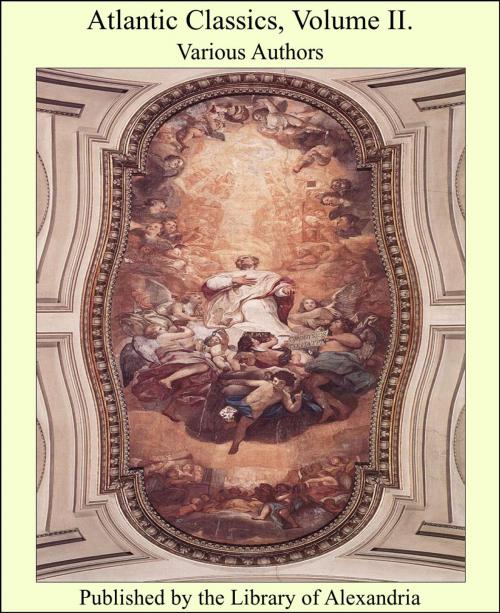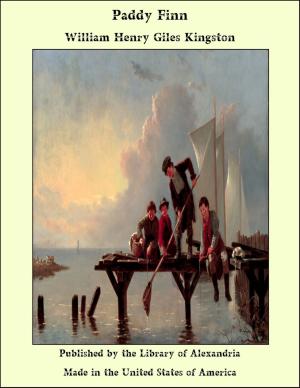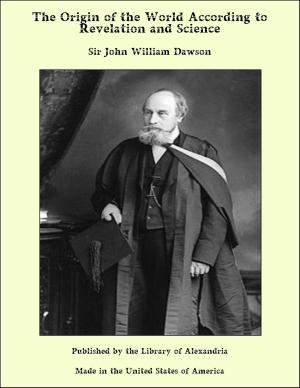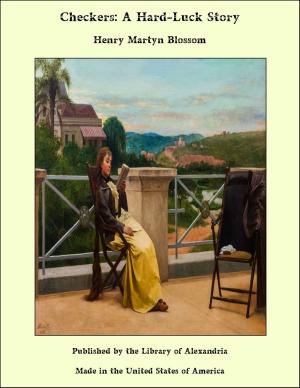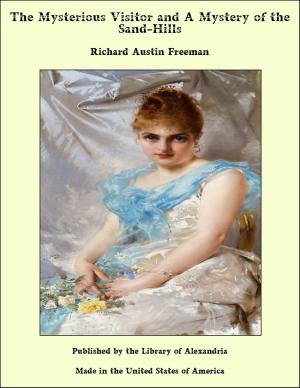Atlantic Classics, Volume II.
Nonfiction, Religion & Spirituality, New Age, History, Fiction & Literature| Author: | Various Authors | ISBN: | 9781465521224 |
| Publisher: | Library of Alexandria | Publication: | July 29, 2009 |
| Imprint: | Library of Alexandria | Language: | English |
| Author: | Various Authors |
| ISBN: | 9781465521224 |
| Publisher: | Library of Alexandria |
| Publication: | July 29, 2009 |
| Imprint: | Library of Alexandria |
| Language: | English |
WHEN, some two years ago a collection of Atlantic essays was offered to the public, it was the editor's idea that this volume should be, to use the current phrase, a kind of permanent exhibit of the character and quality of The Atlantic. In these hurrying days, even the sedatest of magazines must quicken its pace to keep abreast of the marching world, and much that is most serviceable in The Atlantic during its appointed life dies at the heart when a new number brings fresh interests to men's minds. But a residue there is, no more useful at the time, perhaps, than much which perishes, but which evidently ought to have such length of days as the covers of a book can ensure for it. The experiment was made with the first volume of Atlantic Classics, composed of sixteen essays, by as many authors, all dealing with topics of more than temporary interest. The success of this book, which has been many times reprinted, outstripped anticipation; more than that, it assumed a character quite unlooked for, and proceeded, on its own account, to introduce itself into the curricula of colleges and high schools throughout the country, welcomed, as the editor is credibly informed, by students as well as by teachers. Even a layman can see that in such a use there is a sound development. A book of contemporary expression, exhilarating to the student and knitting his interests to those of the world outside the schoolroom, may be peculiarly suited to call forth his appreciation and to kindle emulation within him. Such a book may teach him to think of literature as a living thing, quite as alive and full of spirit as he is himself, and by such method, perhaps, tender shoots of young intelligence may be spared the blighting influence of too formal education. These matters belong most properly to the province of the schoolmaster. The editor's is a different purpose. It is not a text which he seeks to compile, but (forgive a layman's distinction) a book, a book to read, enjoy, and keep. To all who have found amusement and profit in the first series of Atlantic Classics, I think I can promise that here shall be found no lowering of the bars, but only the enlargement of interest which must come from such an influx of new company. During pleasant hours spent in selecting this second series of essays typical of The Atlantic, I have more than once turned aside to re-read well-remembered pages of a similar character written an hundred years and more ago by men whose names, if not effulgent, still shine in clusters from the more condensed paragraphs of our literary histories. Comparisons are odious, and stir inordinate prejudice; so names shall not be mentioned here, but as I turn from those enshrined volumes to the less sententious essays of our day, I can truly say I feel no drop to earth from heaven. Here before me is a group of essays, quite as individual, if less self-conscious; quite as urbane, often in better taste; and quite (one reader thinks) as suggestive of company he should like to keep. Take for instance such a paper as Miss Mackenzie's 'Exile and Postman.' Bind it in levant, gild well ornament and title, and let it stand straight on your bookshelf for an hundred years. Then shall your great-grandson take it down and learn with respect that in his grandsire's day English still lived as English, and that the magic of words cannot die
WHEN, some two years ago a collection of Atlantic essays was offered to the public, it was the editor's idea that this volume should be, to use the current phrase, a kind of permanent exhibit of the character and quality of The Atlantic. In these hurrying days, even the sedatest of magazines must quicken its pace to keep abreast of the marching world, and much that is most serviceable in The Atlantic during its appointed life dies at the heart when a new number brings fresh interests to men's minds. But a residue there is, no more useful at the time, perhaps, than much which perishes, but which evidently ought to have such length of days as the covers of a book can ensure for it. The experiment was made with the first volume of Atlantic Classics, composed of sixteen essays, by as many authors, all dealing with topics of more than temporary interest. The success of this book, which has been many times reprinted, outstripped anticipation; more than that, it assumed a character quite unlooked for, and proceeded, on its own account, to introduce itself into the curricula of colleges and high schools throughout the country, welcomed, as the editor is credibly informed, by students as well as by teachers. Even a layman can see that in such a use there is a sound development. A book of contemporary expression, exhilarating to the student and knitting his interests to those of the world outside the schoolroom, may be peculiarly suited to call forth his appreciation and to kindle emulation within him. Such a book may teach him to think of literature as a living thing, quite as alive and full of spirit as he is himself, and by such method, perhaps, tender shoots of young intelligence may be spared the blighting influence of too formal education. These matters belong most properly to the province of the schoolmaster. The editor's is a different purpose. It is not a text which he seeks to compile, but (forgive a layman's distinction) a book, a book to read, enjoy, and keep. To all who have found amusement and profit in the first series of Atlantic Classics, I think I can promise that here shall be found no lowering of the bars, but only the enlargement of interest which must come from such an influx of new company. During pleasant hours spent in selecting this second series of essays typical of The Atlantic, I have more than once turned aside to re-read well-remembered pages of a similar character written an hundred years and more ago by men whose names, if not effulgent, still shine in clusters from the more condensed paragraphs of our literary histories. Comparisons are odious, and stir inordinate prejudice; so names shall not be mentioned here, but as I turn from those enshrined volumes to the less sententious essays of our day, I can truly say I feel no drop to earth from heaven. Here before me is a group of essays, quite as individual, if less self-conscious; quite as urbane, often in better taste; and quite (one reader thinks) as suggestive of company he should like to keep. Take for instance such a paper as Miss Mackenzie's 'Exile and Postman.' Bind it in levant, gild well ornament and title, and let it stand straight on your bookshelf for an hundred years. Then shall your great-grandson take it down and learn with respect that in his grandsire's day English still lived as English, and that the magic of words cannot die
